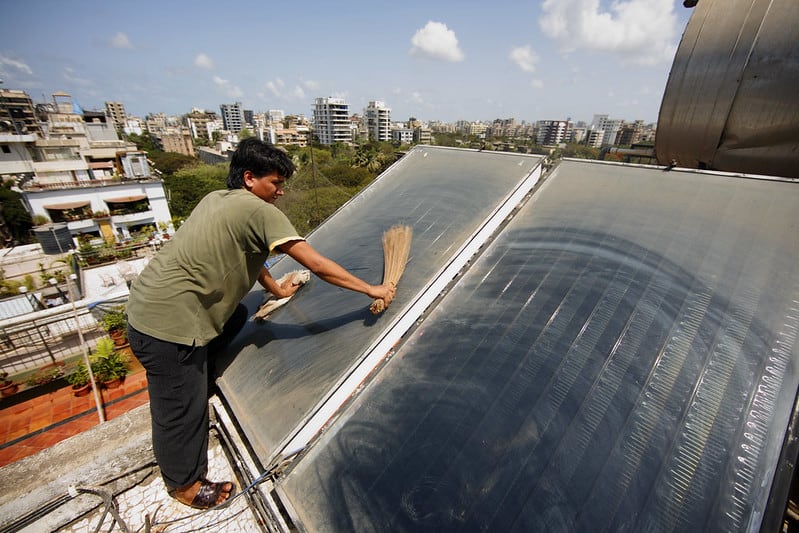COVID-19 cases above 5000, highest ever
Last Wednesday, Mumbai reported its highest-ever single-day spike with over 5,000 new cases for the first time since the pandemic’s outbreak. The city’s total tally increased to 3,74,611, according to Mint. The active containment zones in the city stand at 39 and a total of 432 buildings are sealed. The recovery rate of Mumbai city is 90% while the overall growth rate of Covid cases stands at 0.79%, the Livemint reported. In a random antigen test, seven hawkers at Dadar station were found to be positive in Mumbai, the Times of India reported.
Source: Mint/ Times of India
Holi celebrations banned in Mumbai
Amid an alarming surge in COVID-19 cases in Mumbai, the Brihanmumbai Municipal Corporation (BMC) on March 23 announced that Holi celebrations will not be permitted in both private and public places, Money control reported. The circular, issued by BMC commissioner Iqbal Singh Chahal, said that considering the surge in cases and in view to avoid any crowding in the city, ‘Holi Dahan’ or the burning of Holi fire on March 28 and ‘Rangpanchmi’ celebrations on March 29 will not be allowed. “Action will be taken against violators under the Epidemic Diseases Act of 1897 and Disaster Management Act, 2005,” it said.
Source: Moneycontrol
Need COVID-19 negative test to enter malls
The Brihanmumbai Municipal Corporation (BMC) announced it will be mandatory for people entering any shopping mall in the city to have a negative RT-PCR Covid-19 test report, the Hindustan Times reported. “According to the announcement made on Friday, the rule will be applicable to all malls and if visitors are not carrying a negative Covid-19 test report or don’t have one, they will be able to get a Rapid Antigen Test done at the entrance of the shopping mall.”
Source: Hindustan Times
Temperatures soar in Mumbai
The maximum temperature in Mumbai touched 38.1 degree Celsius on Wednesday, five degrees above normal, the Indian Express reported. This was the third time this month that Mumbai’s maximum temperature crossed the 38-degree mark, after touching 38.1 degree Celsius on March 4 and 38.2 degree Celsius on March 5. The maximum daytime temperature, as per a report in the Indian Express, in March last year was 37.5 degree Celsius (on March 17).”IMD officials attributed the sudden uptick in mercury to hot, dry land breezes originating from the east and north-east of Mumbai.”
Source: The Indian Express

Read more: Parts of Mumbai are warmer than others
Fire at COVID-19 hospital in Bhandup, 10 dead
A massive fire that broke out at Covid-19 hospital in Mumbai’s Bhandup area which killed 10, Times Now reported. A total of 76 patients have been rescued so far, while a fire fighting operation is still underway. Mumbai Police Commissioner Hemant Nagrale has confirmed that 10 people have died in the fire incident. “This is a serious incident. Negligence of hospital management has come to light. We will register a case,” he told Times Now. Meanwhile, Brihanmumbai Municipal Corporation (BMC) has ordered a probe into the fire incident.
Source: Times Now
BMC to plant trees native to Mumbai
The BMC on Tuesday approved the policy of planting tree species native to the city, the Mid-day reported. The corporation said the policy was made considering the characteristics of the soil in Mumbai, and released a list of 41 trees for now. Tree Authority Secretary and Garden Superintendent Jitendra Pardeshi told Mid-day, “While planting trees, it is necessary to take into account the local species and the soil characteristics of the area. People should plant trees that will take root firmly and thrive in the soil of Mumbai.” “If non-native species are planted, they do not take root [firmly], and that increases the risk of tree falling.” The list of trees the BMC released include banyan, pipal, mahogany, cassia, teakwood, sita ashoka (saraca asoca), taman, coconut, amla, mango, parijatak, sandalwood, jackfruit and chafa (temple tree), Mid-day reported.
Source: Mid-day
Read more: Can Mumbai ever be a 15-minute city?

MMRDA begins work for proposed Nariman Point – Colaba bridge
The Mumbai Metropolitan Region Development Authority (MMRDA) has finalised a plan to build a 1.6km bridge from Nariman Point to Colaba, Times of India reported. According to the MMRDA, Li Associates had submitted a traffic survey report in 2005-2008 wherein development of the said bridge connecting Nariman Point to Colaba was recommended. After 16 years the project will finally take shape. The proposed bridge is expected to reduce travel time and traffic problem largely, the Free Press Journal reported.
Source: Times of India/Free Press Journal
Also read:
- Are Mumbaikars prepared for the environmental impact of new coastal projects?
- 1.5 cr people walk to work, but Mumbai doesn’t prioritise pavements
[Complied by Apekshita Varshney]